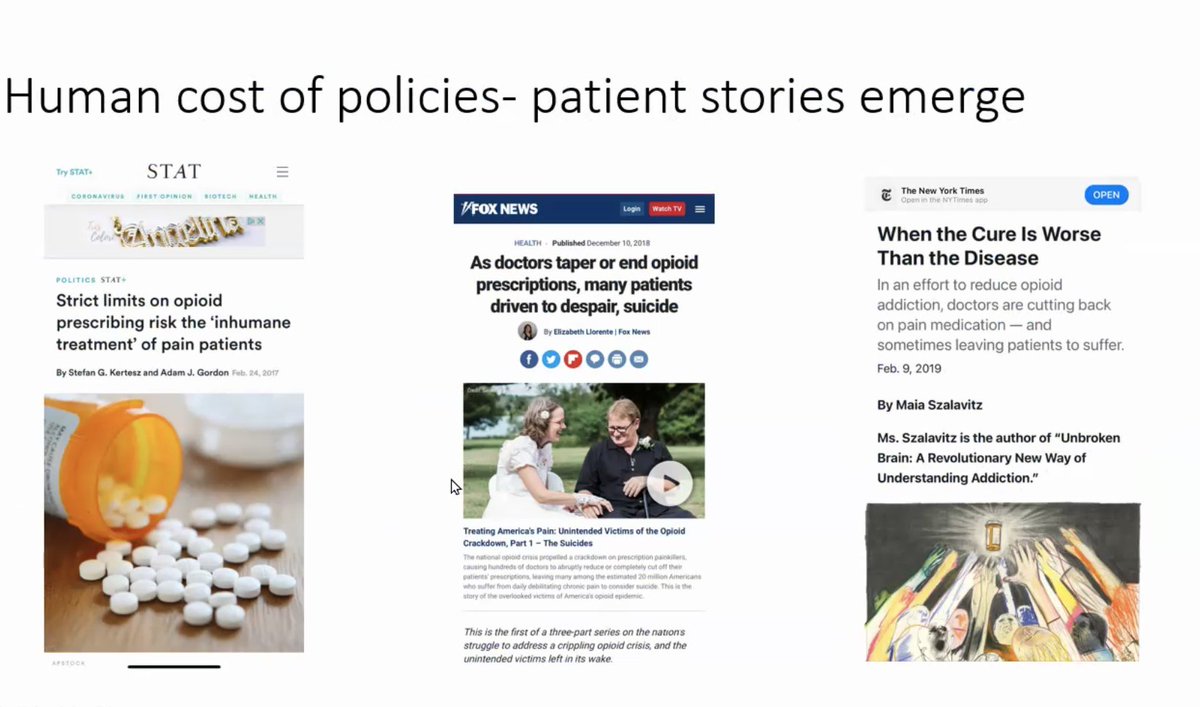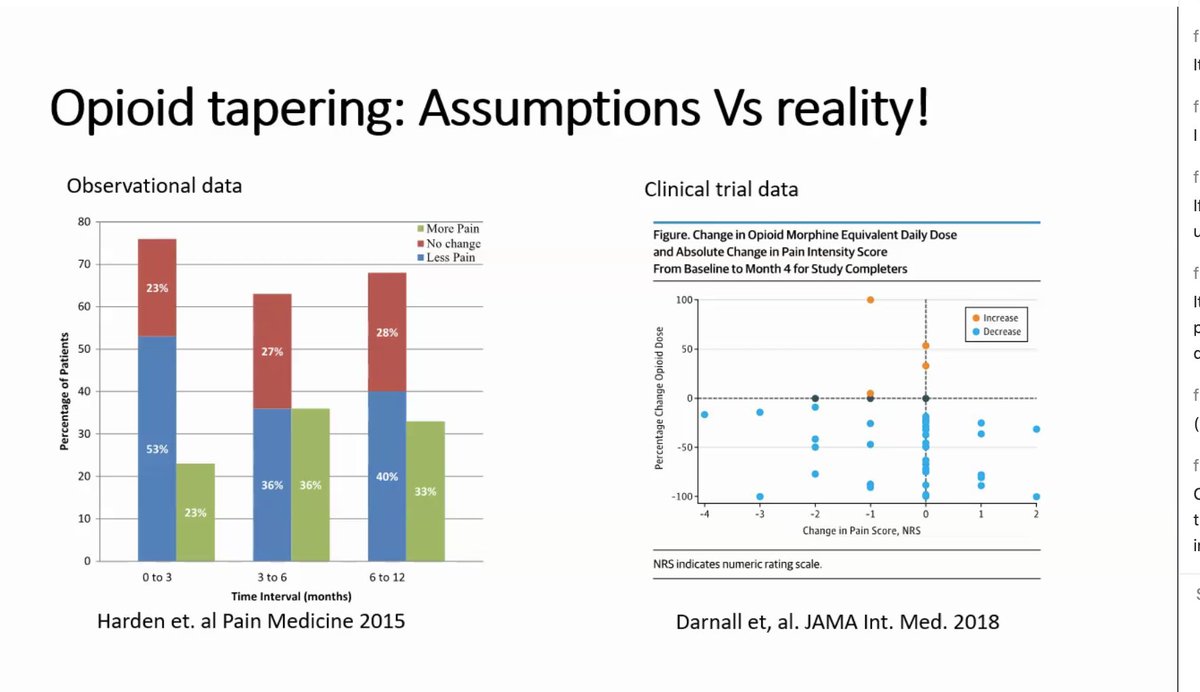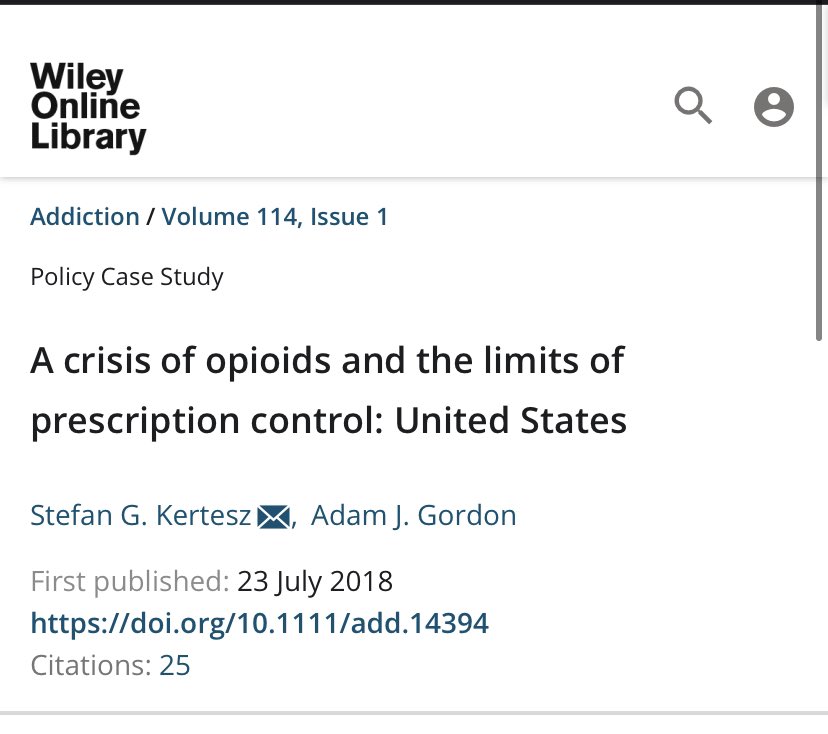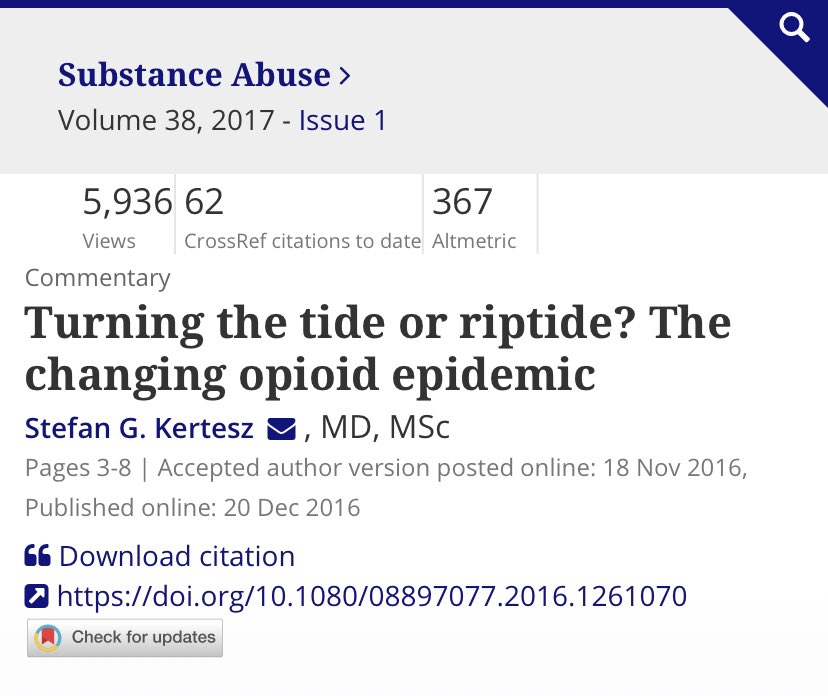
1/This @thedailybeast piece offers "medication counts" as *the key* to patient safety & health. Taken seriously, it endangers human beings. It deserves condemnation from every clinician who works on opioids, patient safety, pain & patient-centered care. thedailybeast.com/how-the-va-is-…
2/I disavow speaking for any agency. But I do speak for myself, and peers who have dedicated their lives to improving patient safety, as reflected in peer-reviewed lit I will cite. With Jeffrey Samet, who directs one node of the NIH HEAL initiative: jamanetwork.com/journals/jaman…
3/Promoting Patient-Centeredness in Opioid Deprescribing: a Blueprint for De-implementation Science, written with
@BethDarnall @AllysonVarley Megan McCullough :link.springer.com/article/10.100…
@BethDarnall @AllysonVarley Megan McCullough :link.springer.com/article/10.100…
4/"Opioid Deaths in Ontario Canada" with
@DrScottHadland
- we underscore that YES opioid prescribing can be harmful. And YES we must also avoid myopic ways of thinking about complex problems at this time bmj.com/content/362/bm…
@DrScottHadland
- we underscore that YES opioid prescribing can be harmful. And YES we must also avoid myopic ways of thinking about complex problems at this time bmj.com/content/362/bm…
5/We now understand that the human response to historic overprescribing patterns and uncritical, unthoughtful media stories of "the prescriptions are high" is incautious reduction, as charted by
@HNeprash link.springer.com/article/10.100…
@HNeprash link.springer.com/article/10.100…
6/The changes spurred by such reactive coverage are due to health systems that can't handle subtlety, that devalue human contact, and clinicians who are themselves uncomfortable with opioid/pain/addiction issues, as I coauthored with
@varley
here: journals.sagepub.com/doi/full/10.11…
@varley
here: journals.sagepub.com/doi/full/10.11…
7/The normal, ordinary response to that Newsweek article is to intensify and speed up reductions among persons who are long term opioid recipients, i.e. easily flagged targets. Our views of the science and the ethics of that are journals.sagepub.com/doi/abs/10.117…
8/Sum-up: Flooding people with psychoactive Rx treatments is harmful. It reflects our addiction to simplistic solutions.And myopic focus on only "the pills" spurred a contrary rampage, with innocent victims. Just because journalists can exploit that, doesn't mean they should/fin
• • •
Missing some Tweet in this thread? You can try to
force a refresh










